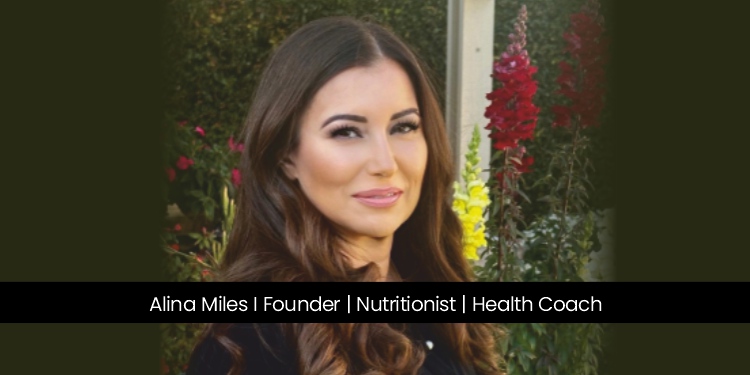Alina Miles is a dedicated nutritionist and wellness coach, renowned for creating personalized nutrition plans that align with an individual’s unique lifestyle, goals, and preferences. With an impressive trajectory in empowering others with the knowledge and tools to make lasting changes, Alina has carved a niche in nutrition consulting.
Holding a Master’s Degree in Applied Nutrition from the University of New England and a Bachelor’s Degree in Nutrition Science, graduated Magna Cum Laude from Purdue University, Alina’s academic foundation laid the groundwork for her illustrious career.
Early Beginnings in Nutrition: The Inspiration
When Alina was 10 years old, her father passed away suddenly from a heart attack. He was overweight, smoking, and only 45 years old. As she grew up, Alina realized that an unhealthy lifestyle could have serious health consequences even at a young age. Committed to making a difference, she wanted to learn how to lead a healthy lifestyle and prevent premature deaths just like her father’s. She did not want to see another child lose a parent just because they are overweight or smoking. After her graduation, Alina started her practice and created the Nutrition Checkpoint.
Alina‘s Relationship with Food and Health: Their Impact on Her Coaching
After having children, Alina struggled with weight loss and health issues. However, she remained committed to maintaining a nutritious diet. She encourages her clients to recognize that stress and health challenges are a part of life and emphasizes the importance of approaching food with a positive and balanced mindset.
Guiding People Amid the Conflicting Nutrition Advice
Alina helps her clients navigate misinformation by focusing on scientifically backed research rather than trends or fad diets. She teaches them how to determine if the source of a nutrition claim is supported by research or if a company is trying to sell a product without any proof of its effectiveness.
Common Nutrition Myths Alina Often Debunk
The first myth is “Carbohydrates make you gain weight and you should avoid eating them if you want to lose weight.” The truth is that eating healthy carbohydrates is necessary for a balanced diet. Consuming whole grains, legumes, and fruits is part of a healthy diet that supports weight loss.
Another myth is that “Eating fat makes you fat.” In reality, consuming healthy fats helps with weight loss. Olive oil, avocado, and nuts provide essential healthy fats that are important for brain function and can also help with weight loss when consumed in moderation. Another myth is that “Detox diets and cleanses remove toxins.” The liver and kidneys naturally detoxify the body without the need for special diets or cleanses. Most detox products are just a marketing gimmick with no specific backing. A healthy diet with whole foods, fresh products, and natural ingredients supports natural detoxification.
Alina’s Approach to Tailoring the Nutrition Plans
When tailoring nutrition plans, Alina asks numerous questions about her clients’ lifestyles, including their work schedules, and activity levels. She also considers their culture and religious preferences, addressing dietary restrictions such as gluten-free, dairy-free, or plant-based diets and taking into account any specific health needs like diabetes, heart disease, etc. By looking at the overall picture as well as the client’s goals, whether they want to lose or gain weight or simply eat healthier, Alina personalizes a meal plan for each individual. Additionally, she provides easy recipes and a grocery shopping list to support her clients’ dietary choices.
The Biggest Misconceptions about Gluten-free Diets
Many people believe that eating gluten-free is healthy. However, the truth is that most gluten-free breads are made from low-quality white bread, which lacks essential nutrients and it mostly contains empty calories. The only people who truly need to consume gluten-free products are those with celiac disease and people with gluten sensitivity. For most people, eating whole wheat whole grain breads, which are rich in nutrients and fiber, is a better option. These alternatives are less processed and do not cause significant spikes in blood sugar levels.
Balancing Science-based Nutrition with a Client’s Personal Food Preferences
First, Alina takes time to understand her client’s eating habits, food preferences and dislikes, and any patterns of emotional eating. Using scientific principles as a foundation, she ensures that each meal is balanced, including lean protein, healthy carbohydrates, and healthy fats, while adjusting portions instead of eliminating foods. For example, if the client loves pasta, Alina has them eat one bowl of whole wheat pasta with added vegetables, cooked with olive oil, making it a healthier option. By making small changes in eating habits, clients can achieve their nutrition goals in a science-based way that feels manageable and sustainable.
Significance of Mental Health in Nutrition Goals
Mental health plays an important role in nutrition. Stress and anxiety increase cortisol levels, which often leads to cravings for high-sugar and high-fat foods. Many people turn to food as a way to cope with emotions such as sadness or depression, which can result in emotional eating of unhealthy foods. When Alina notices signs of emotional eating, she implements different techniques depending on the situation. Mindful eating exercises, like teaching clients to distinguish between true hunger and emotional eating, can be very helpful. Additionally, she encourages stress management through activities like exercise, meditation, or other forms of relaxation.
Notable Trends and Technologies in Nutrition
Some prominent trends in personalized nutrition include genetic testing, which analyzes DNA to create tailored diets based on how individuals metabolize nutrients. Alina is particularly enthusiastic about gut microbiome analysis, which recommends probiotics and tailored diets for immunity and mental health. Additionally, AI and tech have introduced apps that track personalized food recommendations.
An exciting tech advancement is 3D-printed food, which allows customizing meals for specific nutrient needs. It is a game changer for clinical nutrition and elderly care. Alina is also thrilled about lab-grown dairy and meat, products through fermentation to create protein. This innovation aims to reduce factory farming and animal cruelty.
Advantages and Potential Risks of Telehealth
Telehealth and online nutrition coaching offer significant advantages, primarily in terms of accessibility and convenience. These services are especially beneficial for individuals living in rural areas or for those with mobility issues. Additionally, online coaching often comes at a lower cost compared to in-person consultations.
However, there are potential risks associated with telehealth as well. One concern is the lack of regulation, which can lead to misinformation. Many online coaches may not have the proper credentials. Furthermore, some older clients may encounter technology-related difficulties and may prefer in-person interaction.
Integrating Nutrition Education and Personalized Coaching in Healthcare
Many doctors advise their patients to lose weight or cut on sugar or fat, but they often do not refer them to a nutrition professional who can help them achieve their goals. Having a nutrition professional at the doctor’s office could provide valuable support for both patients and doctors.
The Future Outlook of Functional Nutrition and Disease Prevention
DNA-based diets are expected to become more prevalent, allowing individuals to optimize their food choices according to their genetic predispositions to diseases like diabetes, cardiac disease, or obesity.
AI meal planning will utilize algorithms to analyze health data, gut microbiome, and metabolic markers to create tailored nutrition plans.
Gut health testing is becoming increasingly popular with companies aimed at preventing inflammation, autoimmune diseases, and metabolic disorders.
Nutrition-Related Change: Recommended by Alina
Just go back to basics, buy fresh produce, and cook more at home. Simple, fresh food is the key to a healthy lifestyle—nothing fancy or complicated, no need to spend a lot of money on expensive foods.
Creating a Legacy of Impact
Alina wants people to understand that it is never too late to start changing their lifestyle; even the smallest changes count and can make a difference. By making minor adjustments, you can help your body heal and gain more energy. Remember, food is meant to provide us with energy and keep us healthy, not the other way around!
Contact Information:
Email Address: alinamiles12@yahoo.com
Phone Number: 310 922 4719
Website: http://www.thenutritioncheckpoint.com















 The Inc Media is one of the most renowned global Online Business Magazines, that carries news stories about entrepreneurship, small business management, and business. Being a global business magazine, we carve for influential stories and try to take them globally to uplift the business standards and educate the people about new innovations in the business world...
The Inc Media is one of the most renowned global Online Business Magazines, that carries news stories about entrepreneurship, small business management, and business. Being a global business magazine, we carve for influential stories and try to take them globally to uplift the business standards and educate the people about new innovations in the business world...